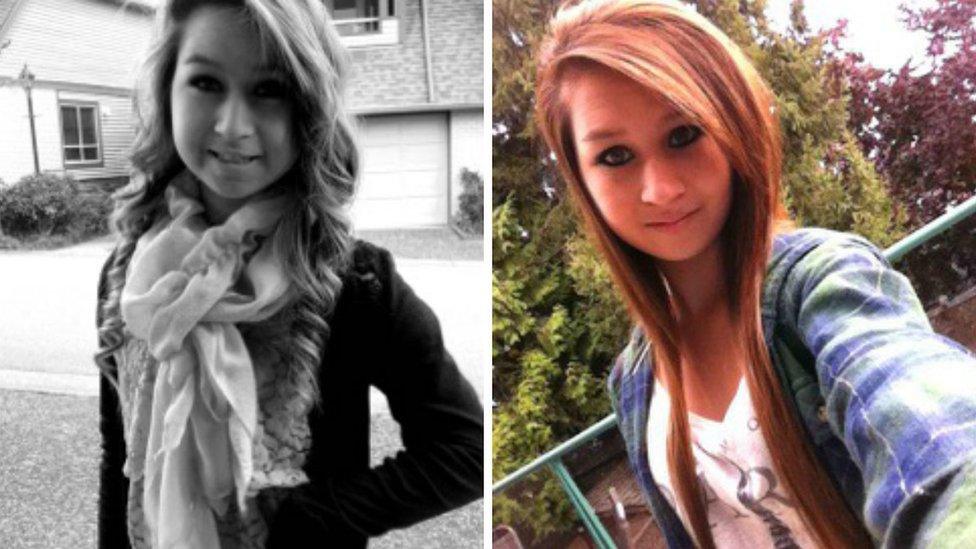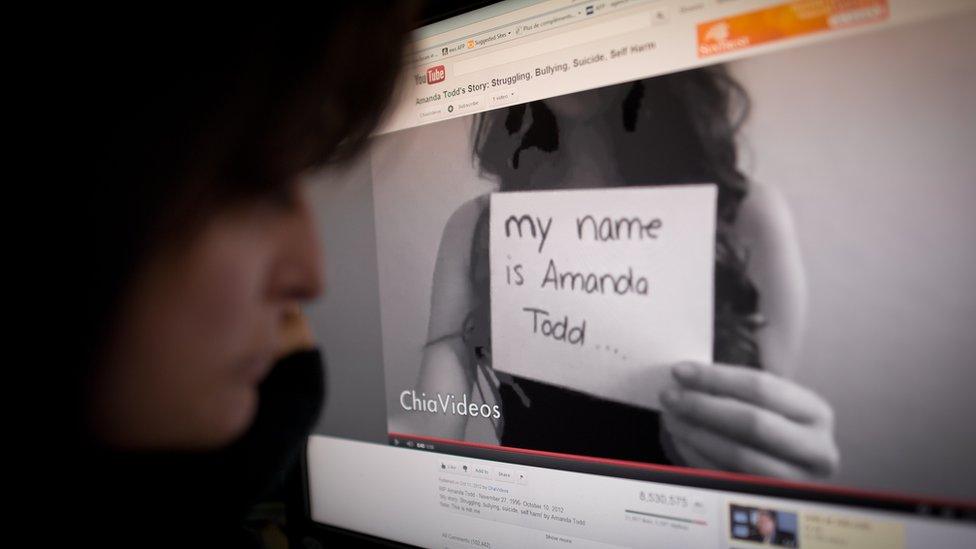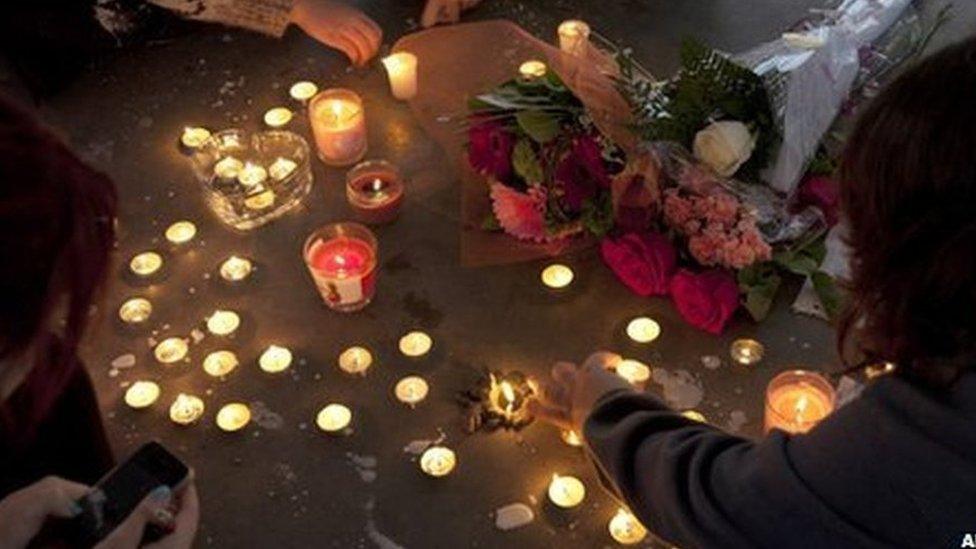Amanda Todd cyber-bully case: Dutchman to be extradited to Canada
- Published

Amanda Todd's mother said her daughter was being bullied "online and offline".
A Dutch court has approved the extradition of a Dutchman to Canada over the cyber-bullying of a girl who later took her own life.
Canadian teenager Amanda Todd posted her story on YouTube, where it was watched millions of times and sparked a debate about cyber-bullying.
Five weeks later, she took her life.
The court ruled 38-year-old Aydin C will first have to stand trial in the Netherlands on charges of extortion, internet luring, and child pornography.
The man, who is identified only by his first name because of Dutch privacy rules, was arrested in January 2014.
He is suspected of blackmailing dozens of young women from the United States, Britain and Netherlands into performing sex acts in front of their webcams.
Although Canada's extradition request does not relate to charges in connection with Amanda Todd's death, Aydin C is suspected by Canadian law enforcement of committing a number of sexual offences in relation to her, a court said in a statement., external (in Dutch).

The YouTube video Amanda Todd posted five weeks before taking her own life has been watched millions of times
Amanda Todd's death prompted calls for cyber-bullying to be made a criminal offence.
The 15-year-old took her own life in 2012, after a stranger threatened to publish a photo of her breasts online.
Her story made headlines worldwide and her video, which contains images of self-harm some readers may find distressing, external, and which she published five weeks before her death, has been watched millions of times.
In it, she said she suffered from anxiety, major depression and panic attacks after a photo of her breasts, which she exposed in an online video chat with a stranger when she was 12, was distributed in her community.
She said she withdrew from those around her and turned to drugs and alcohol, and "cried every night".
The court ruled that all conditions for an extradition request had been fulfilled, but that Aydin C would not be extradited until after his trial in the Netherlands, which is expected to start later this year or in January 2017.
- Published18 April 2014

- Published12 February 2016
